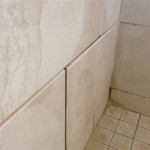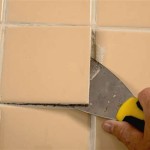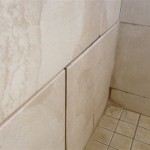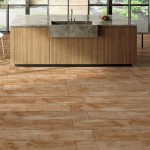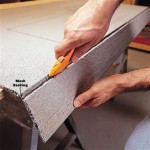Can I Put Tile In a Garage?
Garages often transition from simple parking spaces to multifunctional areas for storage, workshops, or even recreational spaces. This shift in function raises questions about suitable flooring options, and tile often enters the conversation. While aesthetically pleasing and durable in many contexts, the suitability of tile in a garage requires careful consideration of various factors.
One of the primary concerns with garage flooring is moisture. Garages are susceptible to moisture intrusion from various sources, including rainwater, snow carried in on vehicles, and condensation due to temperature fluctuations. While certain types of tile, like porcelain, are more water-resistant than others, like ceramic, prolonged exposure to moisture can still pose problems. Grout, in particular, is vulnerable to moisture absorption, potentially leading to staining, mildew, and cracking. Proper sealing of both the tiles and grout lines is crucial to mitigating these risks, but even with sealing, moisture remains a significant factor to consider.
Temperature fluctuations are another critical aspect to evaluate. Garages, often uninsulated or minimally insulated, experience significant temperature swings throughout the year. These fluctuations can cause expansion and contraction of the tile and the underlying concrete slab, potentially leading to cracking and tile failure. Choosing a tile and installation method that can accommodate these movements is essential. Using a flexible mortar and wider grout lines can help absorb some of this movement, reducing the stress on the tiles.
The weight-bearing capacity of the concrete slab is another important factor. Tiles, especially larger format tiles, add considerable weight to the floor. The concrete slab must be structurally sound and capable of supporting this added weight. Consulting a structural engineer might be necessary to assess the slab's capacity, especially if heavy items will be stored or used in the garage.
The type of tile chosen plays a crucial role in its suitability for a garage environment. Porcelain tiles are generally denser and less porous than ceramic tiles, making them more resistant to moisture and staining. However, even porcelain tiles require proper sealing. Unglazed porcelain tiles offer better slip resistance, an important safety consideration in a garage, especially in the presence of moisture or oil spills. Choosing a tile with a high PEI (Porcelain Enamel Institute) rating indicates greater wear resistance, crucial for a high-traffic area like a garage.
The installation process significantly impacts the longevity and performance of tile in a garage. Proper surface preparation is paramount. The concrete slab must be clean, level, and free of any cracks or imperfections. Any existing cracks should be repaired before tile installation. Using a high-quality, flexible mortar designed for exterior applications and wider grout lines can accommodate the movement caused by temperature fluctuations. Employing a decoupling membrane between the concrete slab and the tile can further mitigate the risk of cracking by allowing the tile to move independently of the slab.
Maintenance requirements are another factor to consider. While tile is generally easy to clean, regular sweeping or vacuuming is necessary to remove dirt and debris that can scratch the surface. Periodic cleaning with a suitable tile cleaner helps maintain its appearance and prevents staining. Resealing the grout lines periodically is also essential to maintain their integrity and prevent moisture penetration.
The intended use of the garage influences the suitability of tile. For garages primarily used for parking and light storage, tile might be a viable option with proper installation and maintenance. However, for garages used as workshops or areas subjected to heavy equipment, spills of harsh chemicals, or significant impact, other flooring options might be more appropriate. Epoxy coatings or specialized garage floor paints offer greater durability and resistance to chemicals and heavy impacts in these scenarios.
Cost is another factor that homeowners must weigh. Tile installation can be more expensive than other garage flooring options, such as epoxy coatings or painted concrete. The cost of materials, including the tiles, mortar, grout, and sealant, plus the labor cost for professional installation, can add up. However, the long-term durability and aesthetic appeal of tile can potentially offset the initial higher cost.
Climate plays a significant role in determining the suitability of tile for a garage. In regions with frequent freeze-thaw cycles, the risk of tile cracking increases significantly due to the expansion and contraction of the concrete slab. In these climates, other flooring options might be more appropriate, or specialized installation techniques might be required to mitigate the risk of cracking.
Considering these factors, homeowners can make an informed decision about whether tile is a suitable flooring option for their garage. Careful evaluation of the specific conditions and intended use of the garage is crucial for a successful and long-lasting tile installation.

Porcelain Tile The Ideal Surface For Garage Flooring Vault Custom Design

Installing Garage Floor Tiles Step By Rubi Blog Usa

Garage Flooring Guide

Garage Flooring Guide Fitting By Dura Ltd

Perforated Garage Floor Tiles Diy Interlocking System Mesh Drain

Garage Floor Tiles Stylish And Durable Options

How To Choose Garage Flooring Inc

Top 5 Inexpensive Garage Flooring Interlocking Tile Options

Diamond Top Garage Floor Tiles Interlocking Flooring By Modutile
5 Options For Covering Garage Floors
Related Posts


